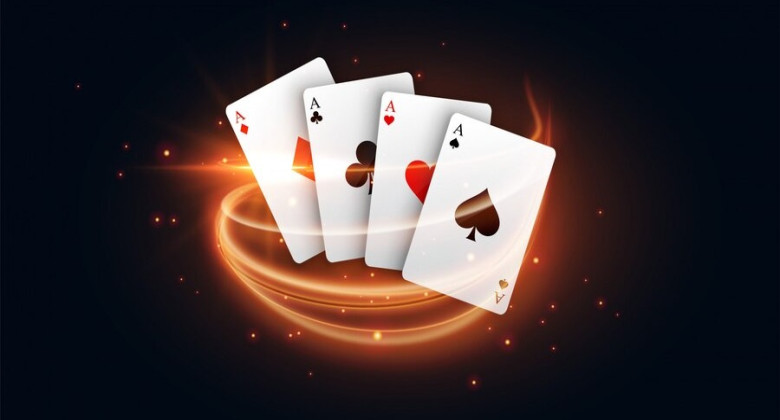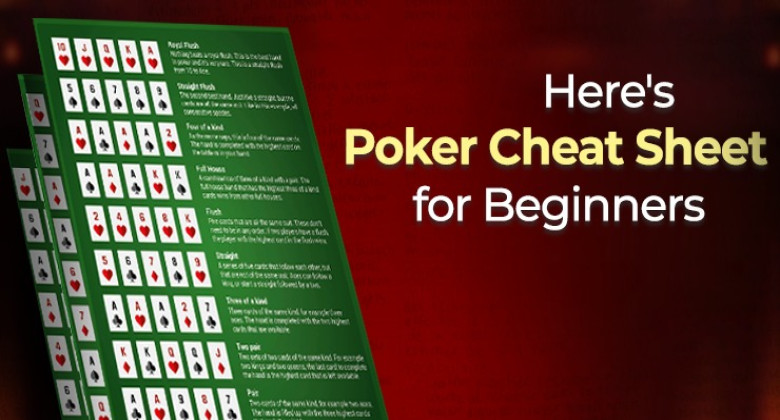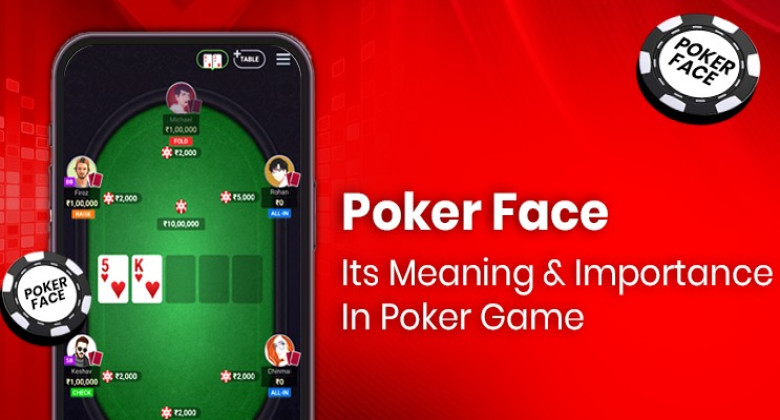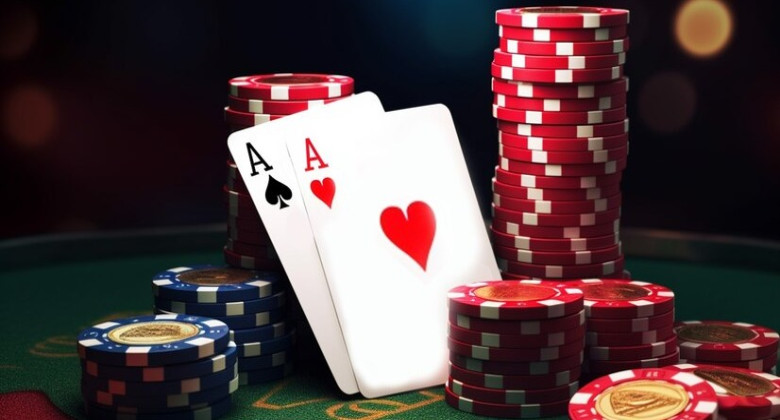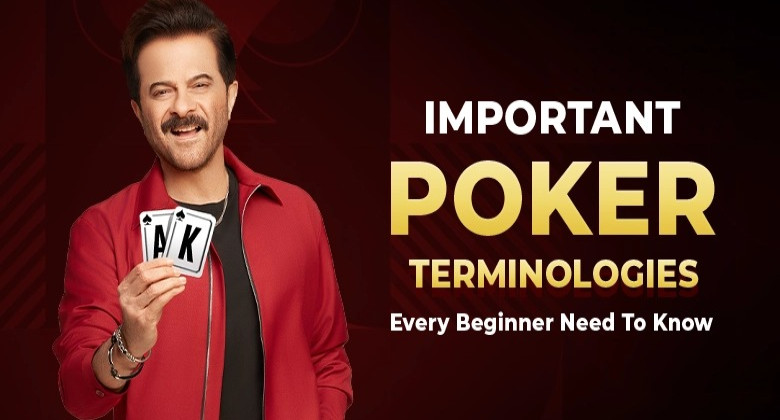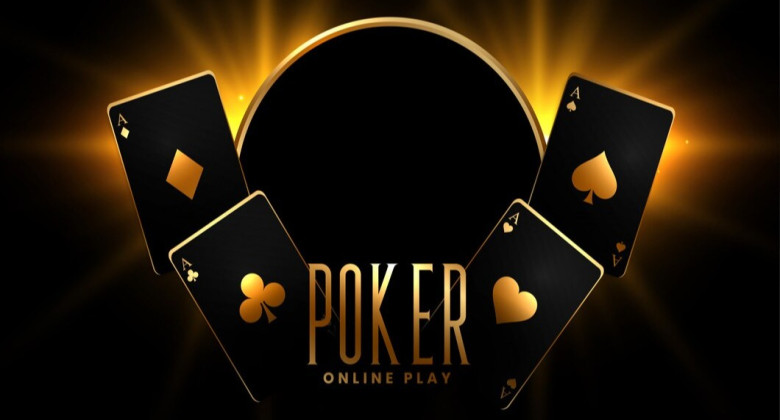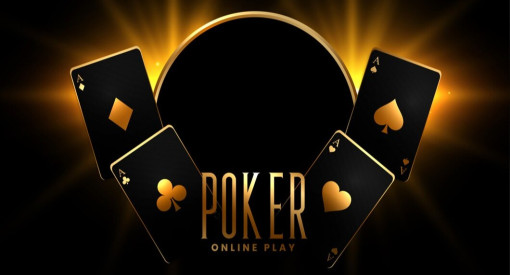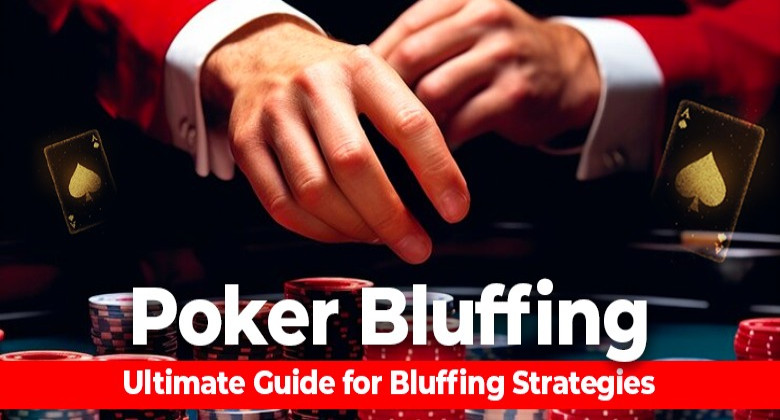
Poker Bluffing- Ultimate Guide for Bluffing Strategies
The poker table is a battleground of wits, where chips stack, and tension rises with every turn of the card. But beyond the calculated raises and risky calls lies a mysterious world, where a well-timed bluff can transform a weak hand into a weapon of psychological warfare. Each player must have a knowledge of poker hand chart. Welcome, aspiring poker sharks, to the Ultimate Guide for Poker Bluffing Strategies!
What is Bluff in Poker?
Bluffing in poker is making a bet or raise with a weak hand to deceive opponents into thinking you have a more substantial hand. Bluffing is crucial in poker game, allowing players to win pots they would otherwise lose.
Why Bluff?
Bluff is a strategic move to mislead others and gain an advantage in the game. But bluffing isn't just about reckless gambling but strategic deception. A well-placed bluff can:
- Steal pots: Convince your opponent you hold a strong hand, forcing them to fold even with decent cards, boosting your chip stack without the showdown.
- Control the game: Dictate the pace of the table, keeping your opponents guessing and hesitant to take the lead.
- Gather information: Gauge your opponent's reading skills and risk tolerance, use poker notes for revealing their tendencies for future hands.
Tips for Bluffing in Poker
Successful bluffing requires a combination of observation, timing, and a deep understanding of your opponent's playing styles. Here are some tips for bluffing in poker:
- Choose the right moment: Bluffing is all about timing. Choose the right moment to bluff, such as when the community cards create possibilities for strong hands or when opponents show weakness. A well-timed bluff can win you the pot.
- Consider your position: Your Positions in Poker at the table is crucial when bluffing. Bluffing from an early position is riskier than bluffing from a late position, as you have less information about your opponents' hands.
- Read your opponents: Reading your opponents is essential when bluffing. Look for signs of weakness, such as hesitation or nervousness, and adjust your play accordingly.
Semi-bluff: A semi-bluff is a bet or raise with a hand that can improve. Semi-bluffing can be a powerful tool, allowing you to win the pot if your opponent folds or improve your hand if they call.
- Size your bets appropriately: Sizing your bets is crucial when bluffing. Bet too little, and your opponents may call your bluff. Bet too much and risk losing too many chips if your bluff is called.
- Be consistent: Consistency is key when bluffing. If you bluff too often, your opponents will catch on and call your bluffs more frequently. If you bluff too little, your opponents will know you only bet with solid hands.
- Use your table image: Your table image is how your opponents perceive you. Your opponents will likely fold to your bluffs if you have a tight table image. If you have a loose table image, your opponents are likelier to call your bluffs.
- Know when to fold: Bluffing is a risky strategy; sometimes, it's best to fold rather than risk losing too many chips. If your bluff is called, don't be afraid to fold and wait for a better opportunity.
Must Read: Tips to Choose the Best Poker Sites
Beyond the Basics
Bluffing is a high-risk, high-reward art. Master it, and you'll dominate the felt. Fail to implement it, and you'll be left empty-handed. Now, let's talk about some advanced bluffing strategies:
- Double barrel: Follow up a successful flop bet with a turn bet, building on your momentum and maximizing potential pot size.
- Float and raise: Call on the flop with a weak hand, then surprise your opponent with a raise on the turn if the table cards improve your odds.
Pro Tip: Watch professional or poker expert players! Observe their bluffing tactics, analyze their timing and betting patterns, and learn from the masters.
Conclusion
Remember, bluffing is a tool, not magic. Use it strategically and always with a solid understanding of the game and your opponent. Practice your technique, analyze your mistakes, and refine your reading skills. Soon, you'll be easily bluffing in your poker game, leaving your opponents shocked and your chip stack overflowing.
Get up to Rs 50,000* as Welcome Bonus



